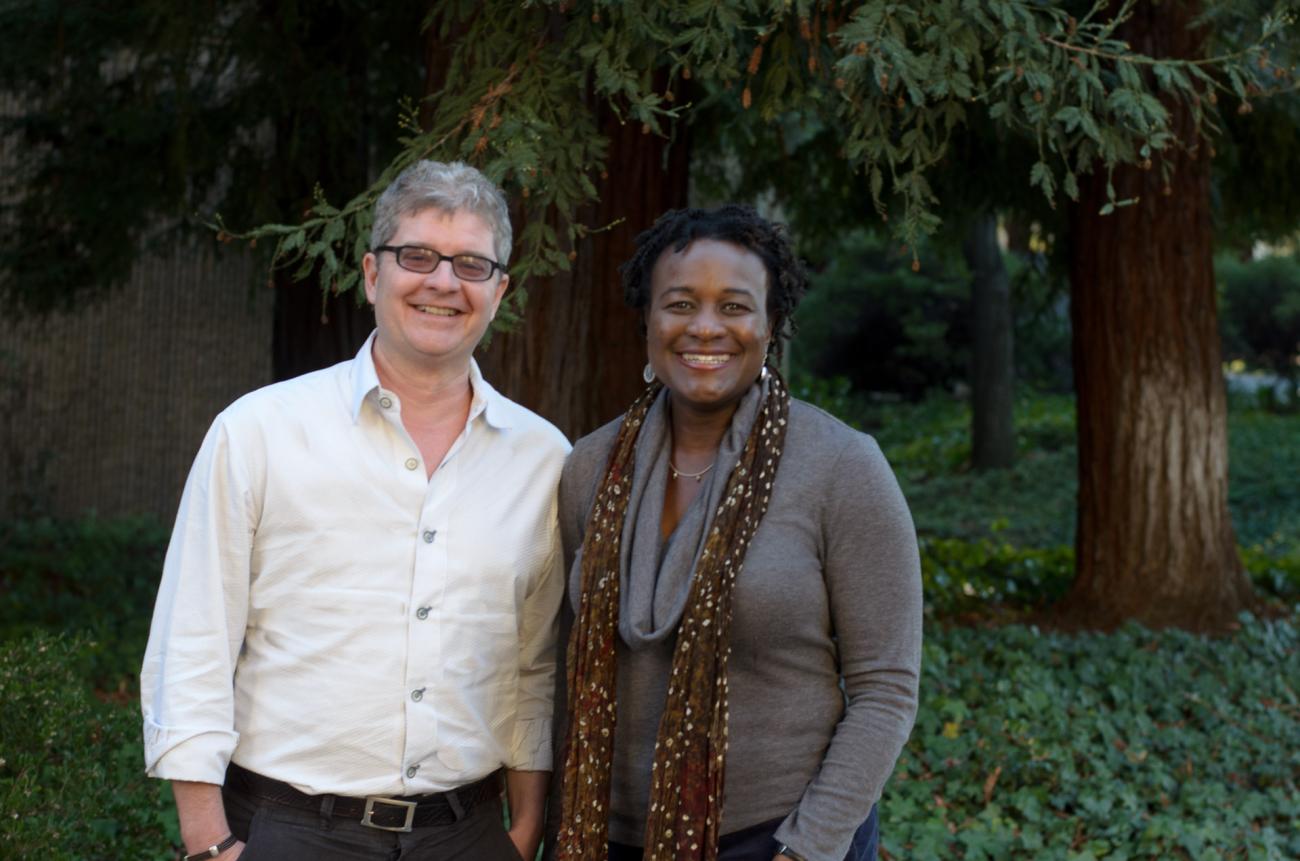
Two Stanford GSE professors elected to National Academy of Education
Two sociologists at Stanford Graduate School of Education — Prudence Carter and Sean Reardon — were elected to membership in the National Academy of Education on the basis of their outstanding scholarship on the effects of race and class on education and the barriers they impose to social mobility and achieving equity.
The NAEd, one of the preeminent academic associations, works to advance education research and to promote its use in developing education policy and practice. The group has produced reports on such pressing national education issues as student achievement assessments and teacher education. In addition, it offers professional development fellowship programs that support the preparation of the next generation of scholars.
Stanford and New York University were the only institutions to have two faculty members among this year’s group of 14 newly elected scholars, according to a Jan. 13 statement from the academy. Stanford has more NAEd members — 21 of 184 — than any other university.
Carter, professor of education and faculty director of the GSE’s John W. Gardner Center for Youth and Their Communities, examines academic and mobility differences attributable to race, ethnicity, class and gender, and she consults with educators about measures to address disparities. She uses a “grounded theory” research approach that has involved intense observations of select schools and communities in the United States and abroad.
Carter is the author of the award-winning Keepin’ It Real: School Success Beyond Black and White (Oxford 2005) and more recently Stubborn Roots: Race, Culture, and Inequality in U.S. and South African Schools (Oxford 2012), which offers insights into the racial dynamics at eight schools in the two nations and why some schools achieve greater equity than others. She also co-edited and contributed to Closing the Opportunity Gap: What America Must Do to Give All Children an Even Chance (Oxford 2013), which examines the shortcomings of national policy and U.S. public school-communities in providing students with equal access to opportunities.
Carter joined the GSE faculty in 2007 from Harvard University, where she was associate professor of sociology. She was earlier a Ford Foundation Postdoctoral Fellow with the Program on Poverty, the Underclass and Public Policy and the Program for Research on Black Americans at the University of Michigan. She received her doctorate in sociology from Columbia University in 1999 and was recently appointed a trustee of the William T. Grant Foundation.
Reardon, professor of education and a member of Stanford’s Center for Education Policy Analysis, develops complex data sets so that he can investigate the causes, patterns, trends and consequences of social and educational inequality. In particular, he studies issues of residential and school segregation and of racial, ethnic and socioeconomic disparities in academic achievement and educational success.
One of Reardon’s recent studies, included as a chapter in the Russell Sage Foundation’s Whither Opportunity? Rising Inequality and the Uncertain Life Chances of Low-Income Children, showed that the achievement gap between children from high- and low-income families is roughly 30 to 40 percent larger among children born in 2001 than among those born 25 years earlier. It also revealed that the income achievement gap is now nearly twice as large as the black-white achievement gap, while 50 years ago it was the reverse: the black-white gap was one-and-a-half to two times as large as the income gap.
Reardon joined the GSE faculty in 2004 from Penn State, where he was an assistant professor of education and sociology. He received his doctorate in education in 1997 from Harvard University. He has been a winner of the William T. Grant Foundation Scholar Award, Carnegie Scholar Award, and American Educational Research Association’s 2013 Palmer O. Johnson Memorial Award for the year’s best research paper.
Both scholars are former recipients of National Academy of Education Postdoctoral Fellowships.
Carter and Reardon are founders of the Workshop on Poverty and Inequality in Education, a GSE initiative to advance the understanding of the academic achievement, career opportunities and life pathways of low-income and minority children. They also have a project under way with the San Francisco Unified School District to analyze its system for assigning students to schools.



